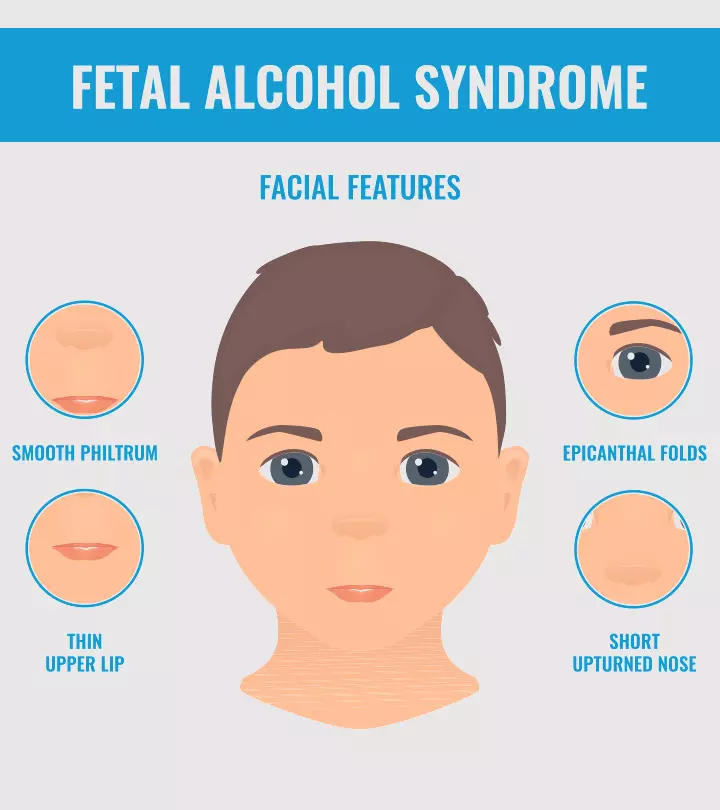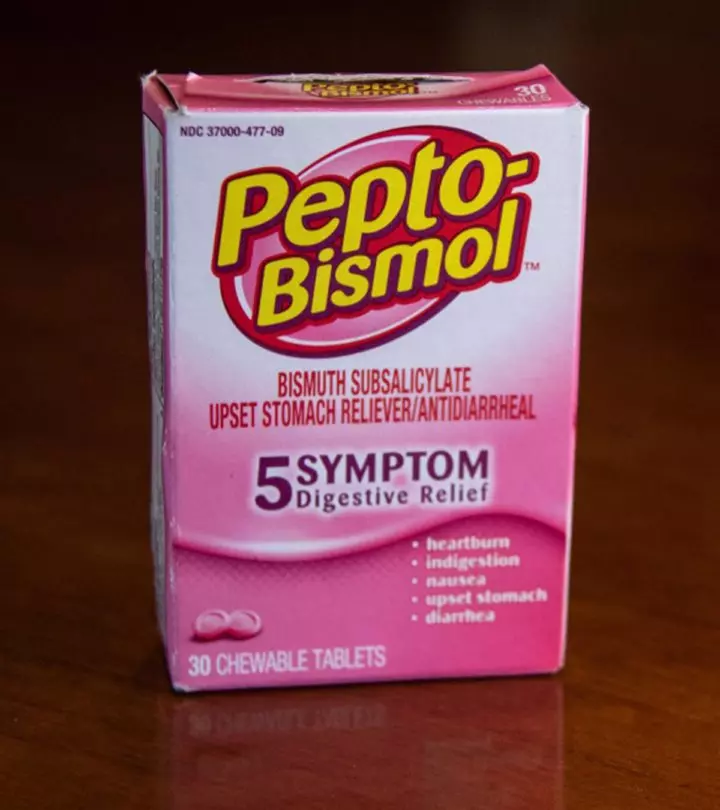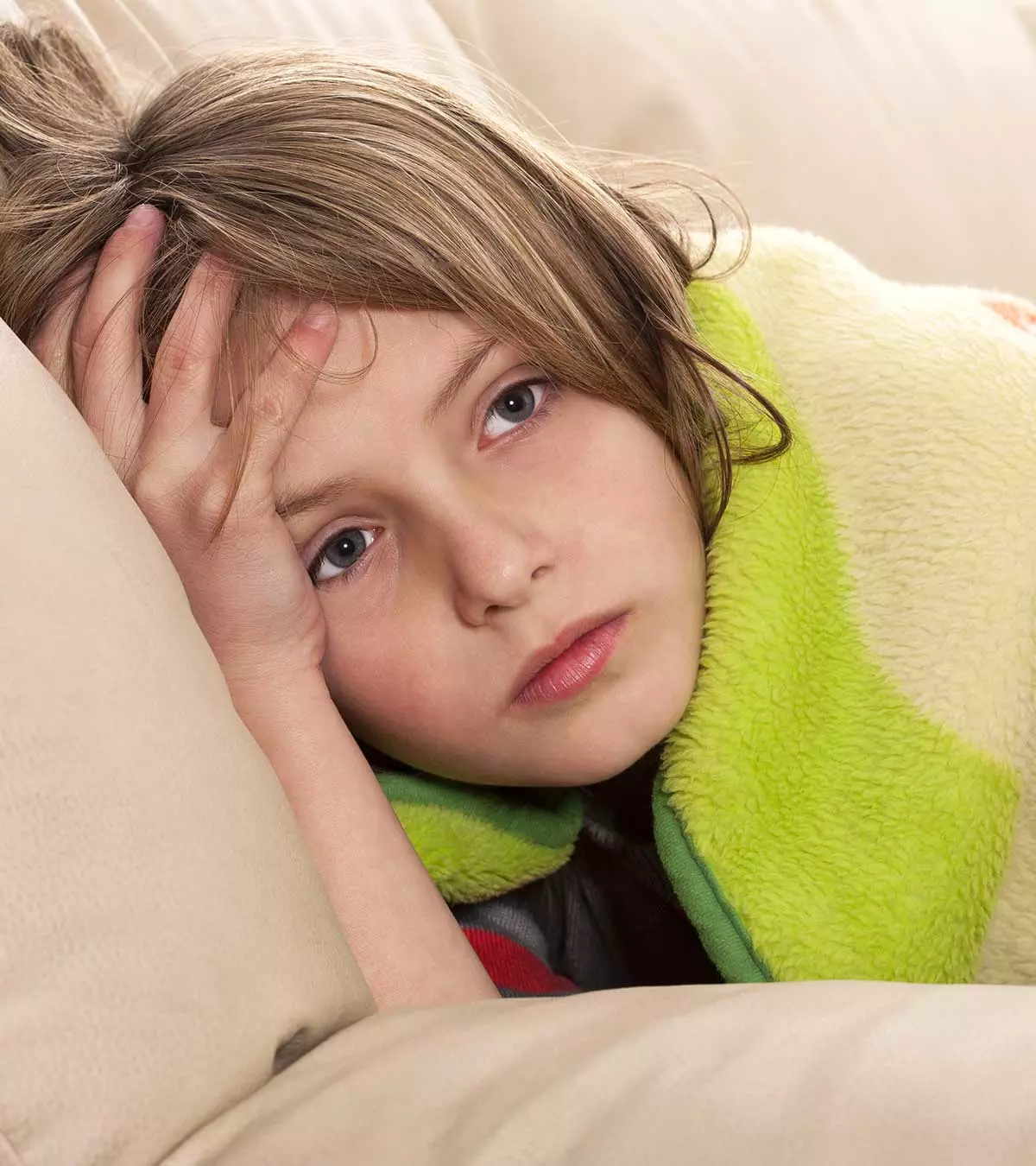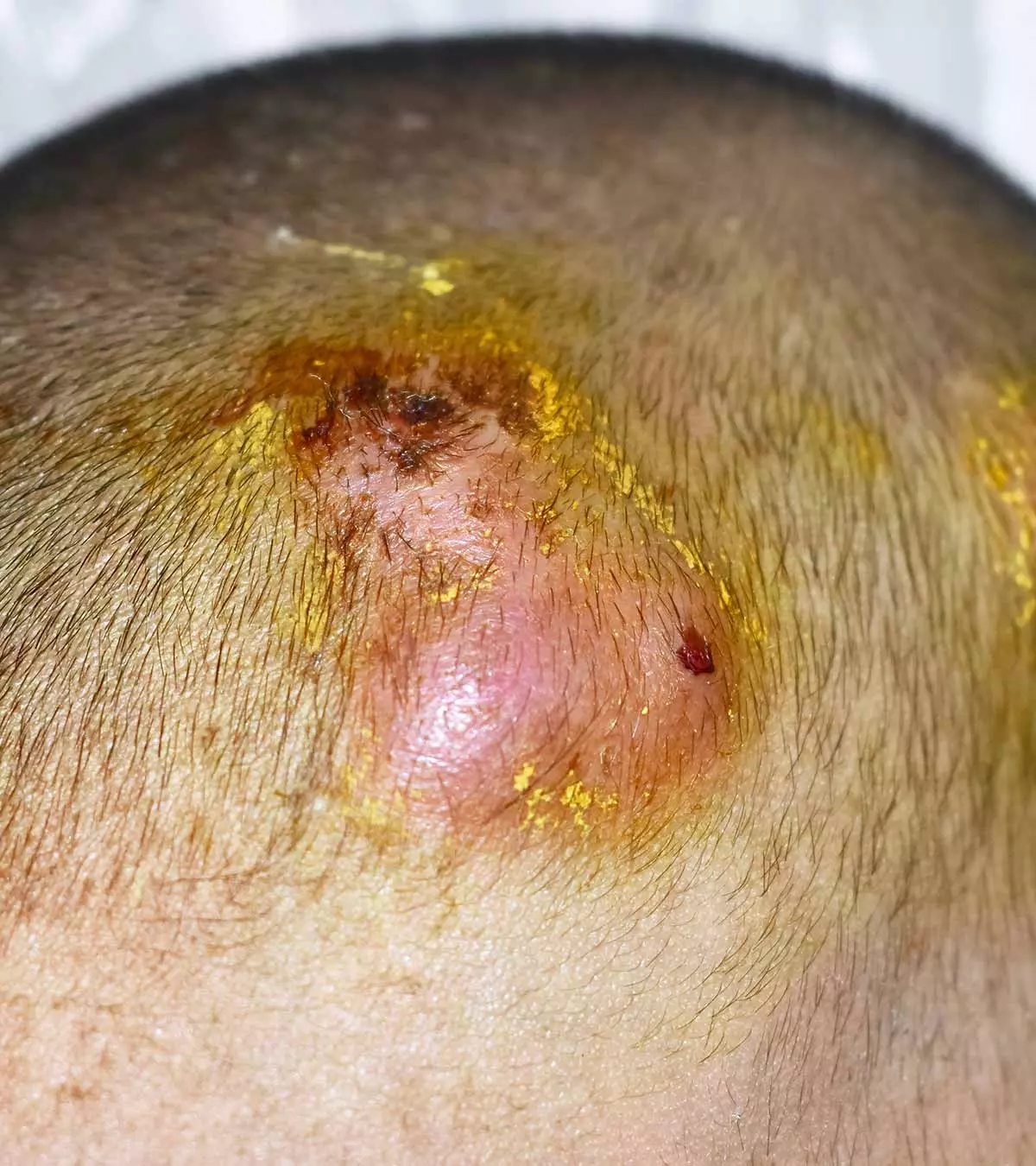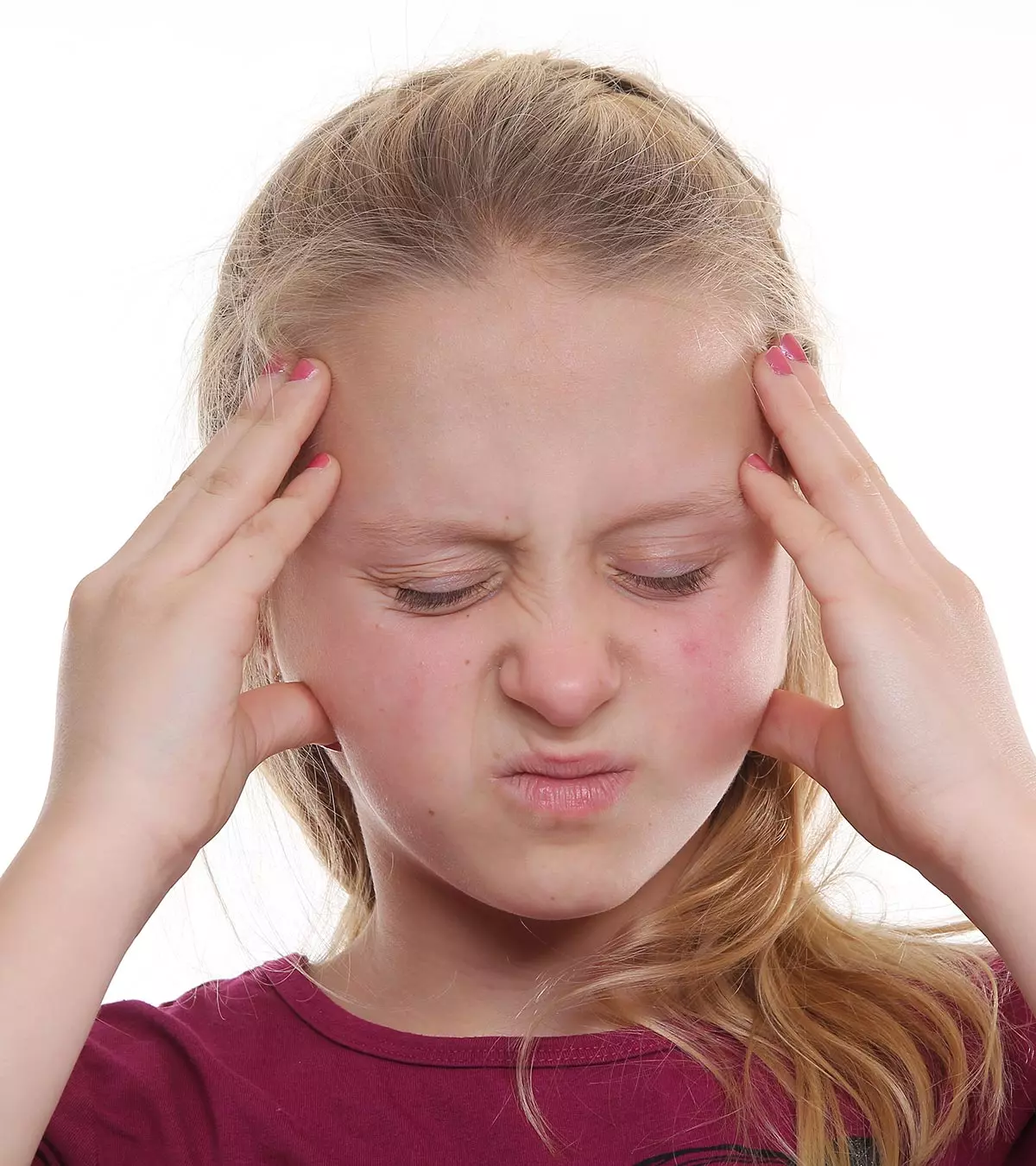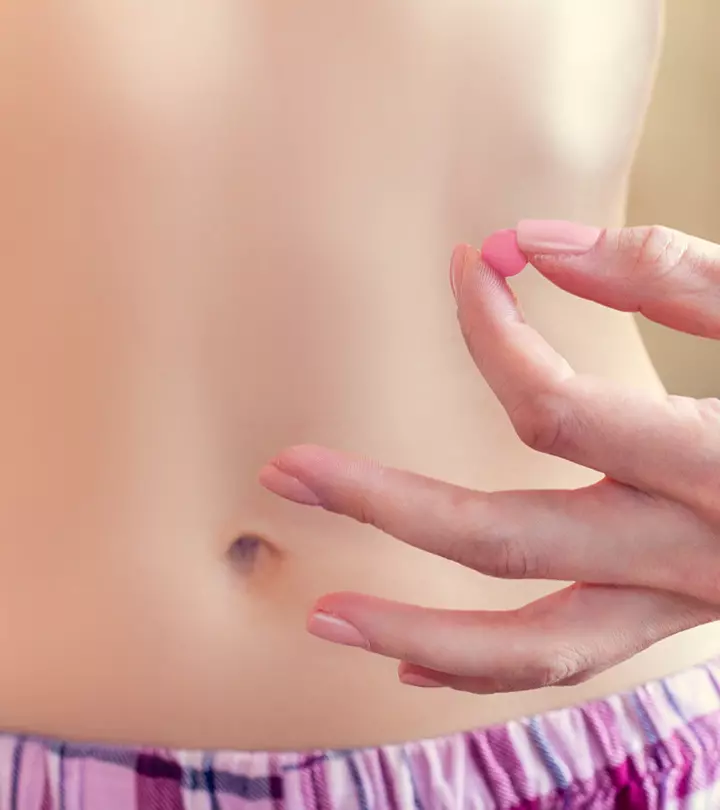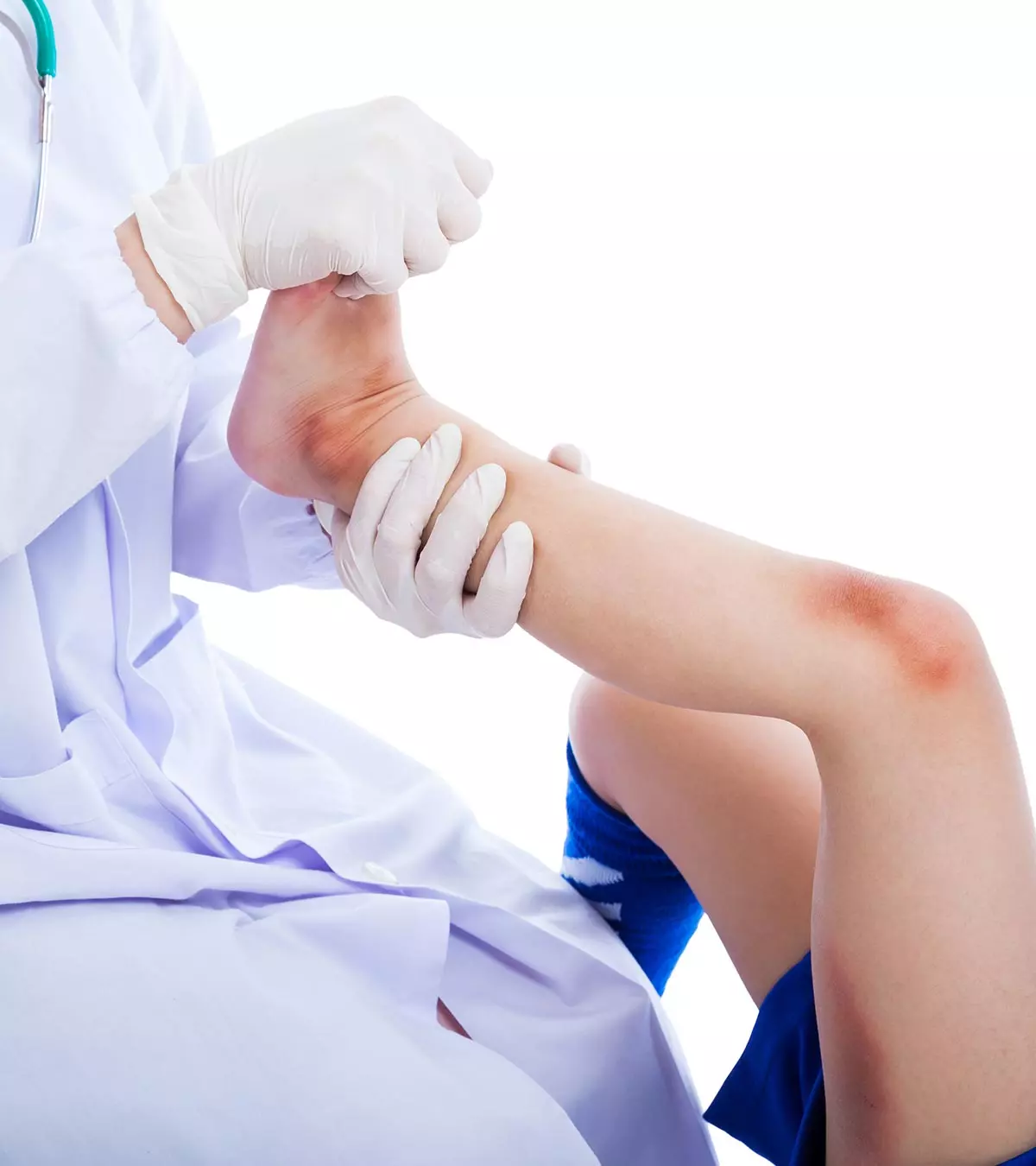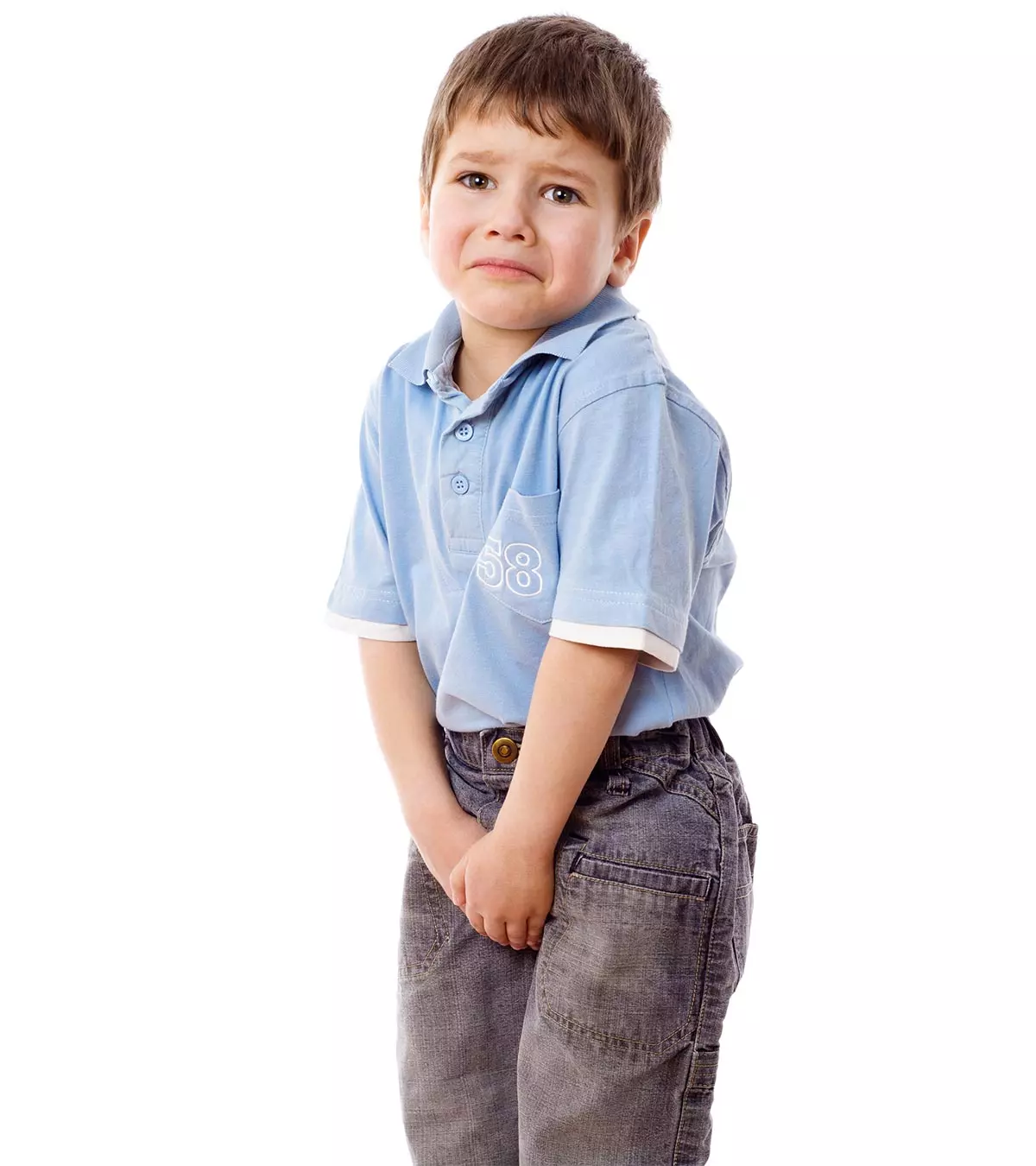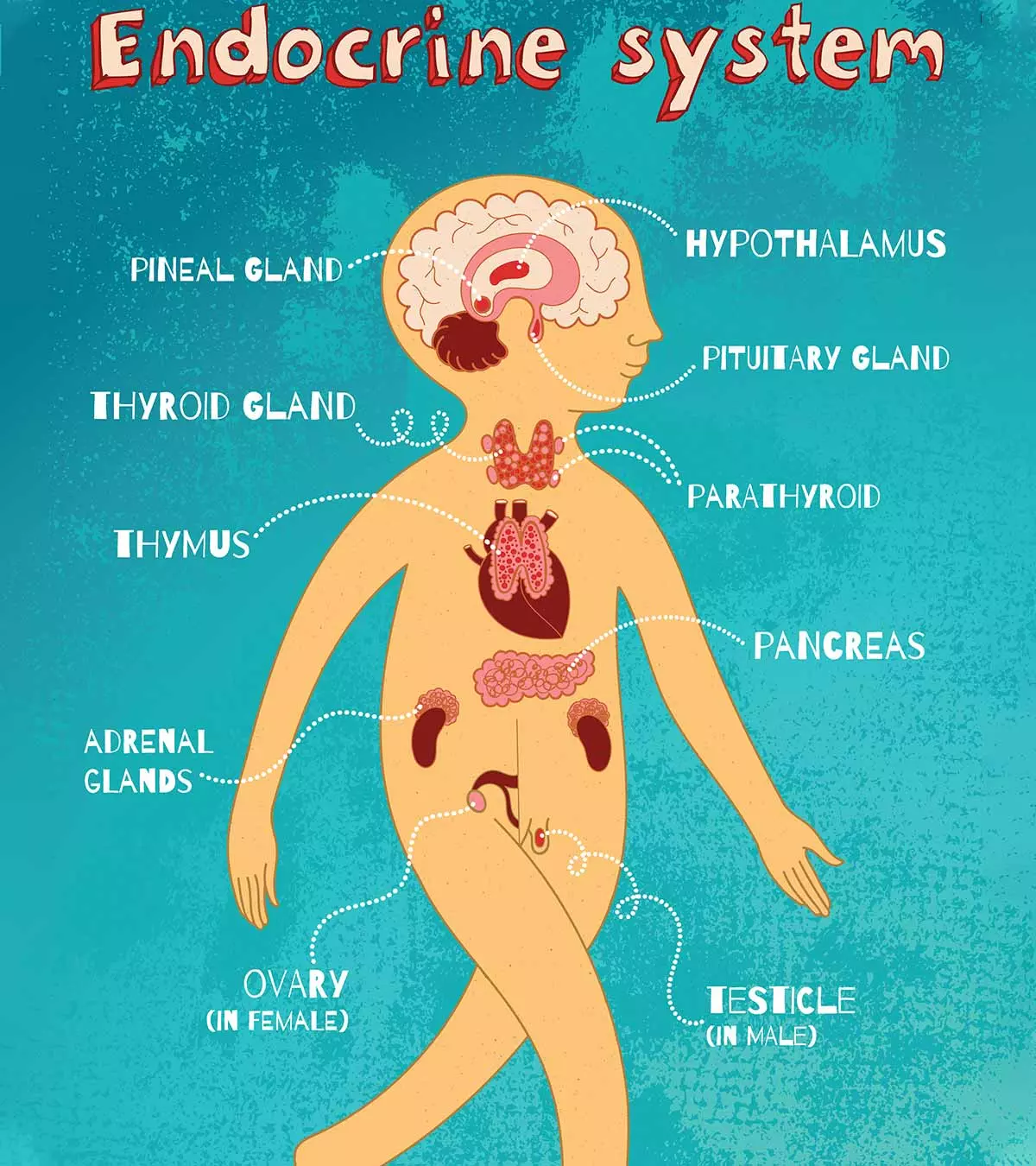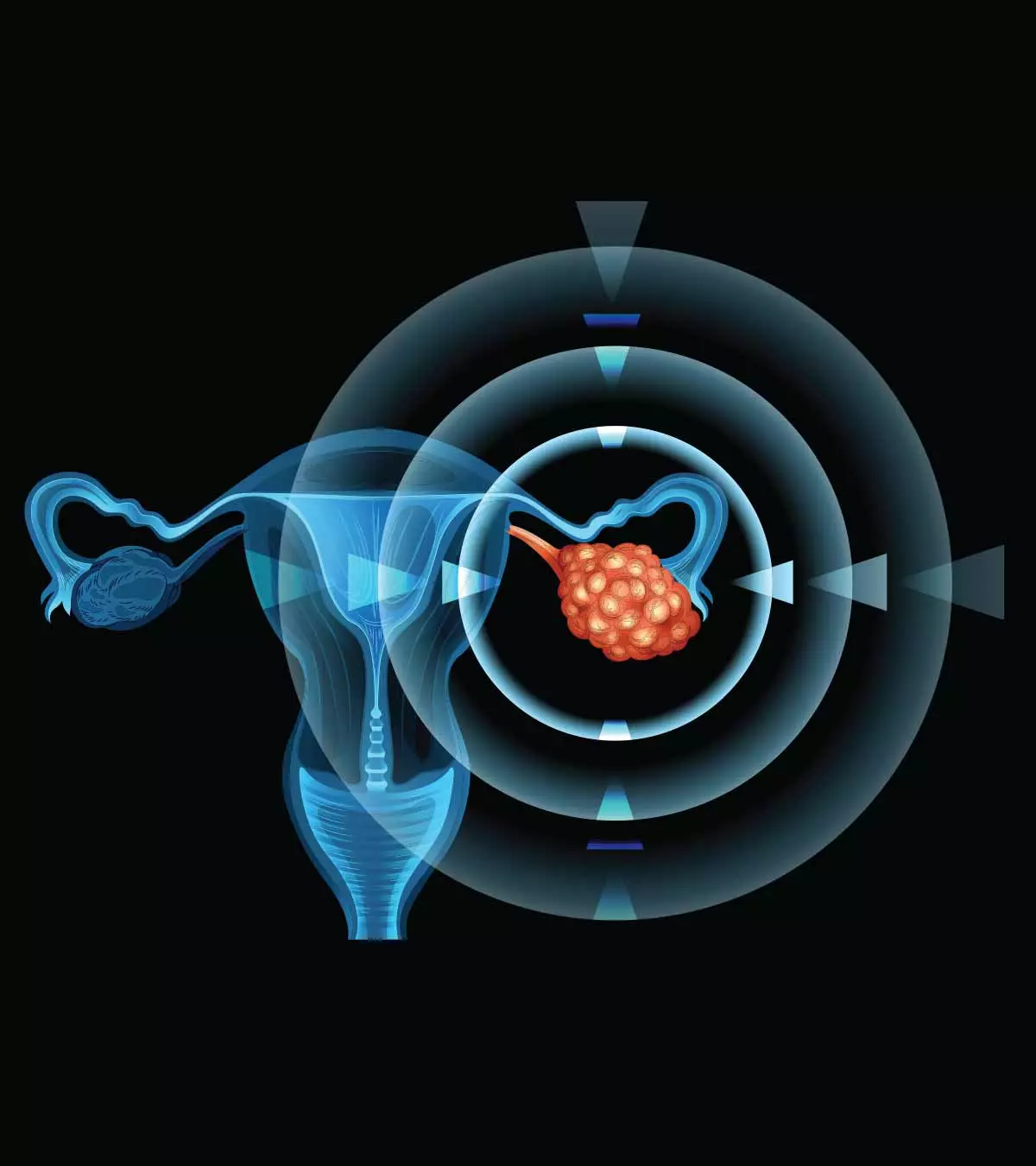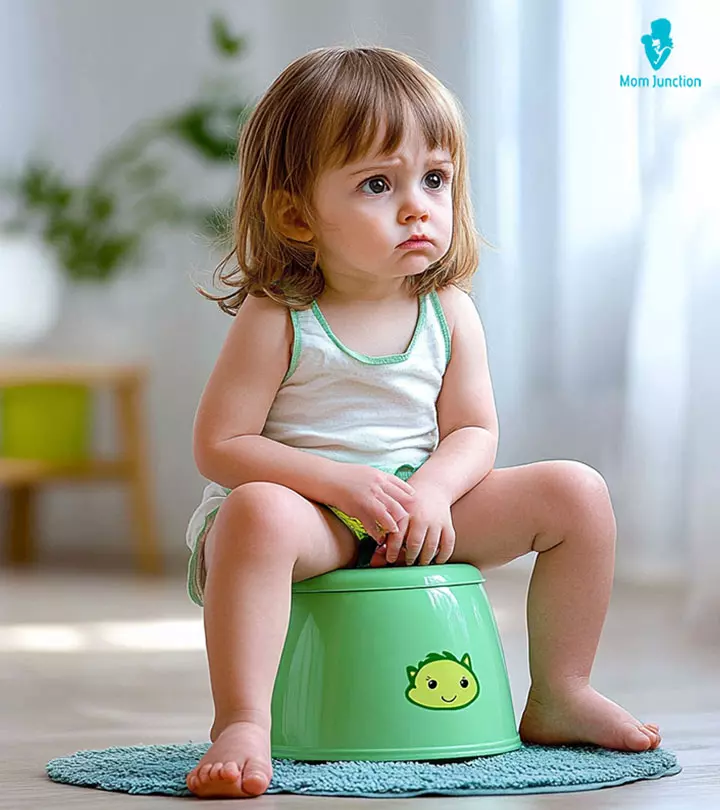
Image: Midjourney/ MomJunction Design Team
Green poop in kids is a typical occurrence caused by dietary factors such as green vegetables or fruits and food coloring. Although green stools (poop) are not a cause for concern in many children, green diarrhea that lasts more than a few days necessitates medical attention.
Stools are typically brown, tan, green, or yellow. If your child has red, black, or white (pale) feces, seek medical attention right away because they could indicate underlying disorders or conditions, such as gastrointestinal (GI) bleeding or jaundice.
Read on to know the various causes, associated symptoms, and treatment options for green stools in children.
Key Pointers
- Green poop in children occurs due to the intake of certain foods or medications but may also be the result of underlying conditions such as diarrhea or infection.
- Dietary adjustments, supplements, or the prescription of antibiotics in the case of infection are some treatment options.
- Green feces is common in children, but it is best to see a doctor if it persists for a long time and is accompanied by other symptoms such as diarrhea, weight loss, or stomach pain.
Causes Of Green Poop In Children
The following are some of the most common causes of green poop in kids (1) (2).
1. Certain medications and iron supplements. According to Cindy Rubin, MD, IBCLC, FAAP, a pediatrician and breastfeeding medicine physician in Chicago, Illinois, “Vitamins could certainly cause green poop as they often contain dyes. Blue dye (think “Superman” flavor of ice cream!) is classic for leading to bright green poop!”
 Quick fact
Quick fact2. Green foods such as spinach and other leafy green vegetables. Poop may also obtain the green color from the maternal dietary intake and intake of medicines in children who are still breastfeeding (3).
3. Artificial green food color or dye in green fruit, snacks, green Jell-O, ice pops, or flavored drinks.
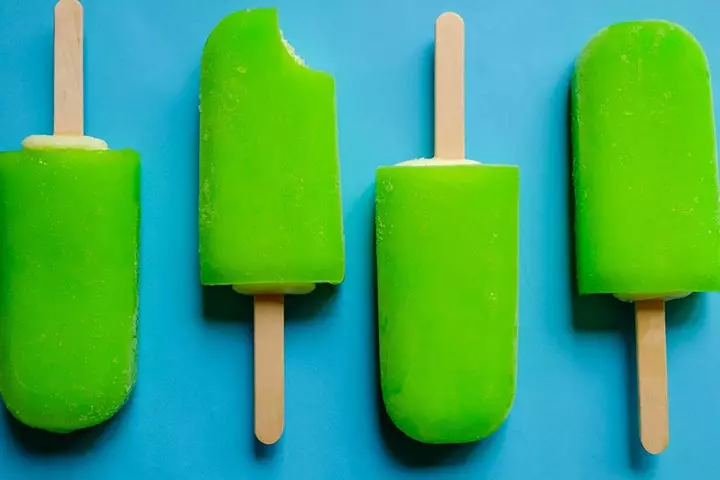
4. Diarrhea in children may cause food and stool to pass faster through the digestive tract before it changes to its natural brown color. If the stool moves too fast through the digestive tract, it may lead to green poop in kids (4). Consult a pediatrician if the child experiences persistent green diarrhea.
Dr. Rubin adds, “Any virus could cause diarrhea of almost any color, though rotavirus causes a classic fluorescent green color of poop.”
5. Infections, such as salmonella food poisoning and stomach flu, and other intestinal disorders such as celiac disease, can affect bowel movement and cause green diarrhea and green stools.
6. Biliary secretion, which can give a green color to the stool. Bile is yellow-green, and if it is not broken down during digestion, children may have dark green stools.
According to the American Academy of Pediatrics, most dark green stools in children are caused by bile, which may sometimes appear as black stools under poor lighting. However, dark-green (not black) stools are normal (5).
If your child has green feces or diarrhea accompanied by gastrointestinal symptoms, seek medical care to diagnose and treat the underlying causes.
Symptoms Associated With Green Stool
Green stool due to food color and other dietary factors may not cause any severe symptoms. However, children with severe diarrheal diseases and other gastrointestinal disorders may have other symptoms. The following symptoms might occur with green poop depending on the underlying cause (2).
- Abdominal pain
- Bloating
- Diarrhea
- Flatulence (gas)
- Foul-smelling feces
- Undigested food or mucus in stool
- Vomiting
- Nausea
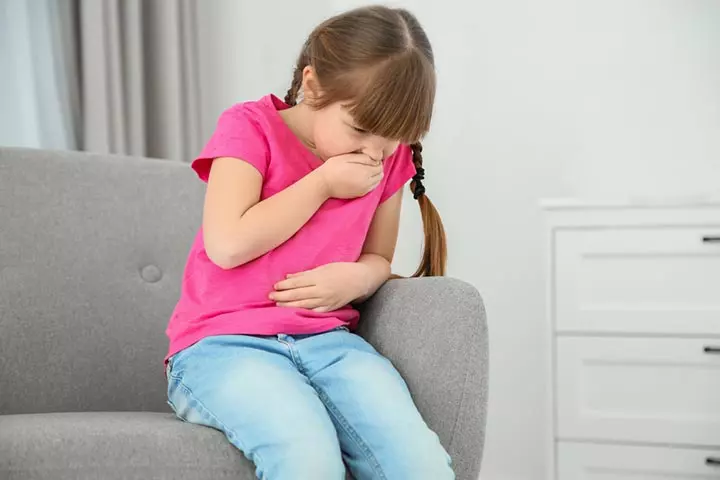
The following symptoms accompanied by green poop can indicate a life-threatening condition and requires emergency medical care (2).
- Severe diarrhea for a few days
- Signs of dehydration, such as less urine (oliguria)
- High fever
- Unconsciousness
- Severe rectal bleeding
- Rapid breathing and breathing difficulties
- Rapid heart rate
- Severe abdominal pain
- Rigid abdomen
- Weakness
Not all children with green stool develop diarrhea or other symptoms. You may seek medical care to know the exact cause.
When To See The Doctor?
Seek medical care if your child has green poop for several days despite eating a balanced and healthy diet.
You should also seek medical attention if your child has other symptoms, such as severe abdominal pain, poor weight gain, vomiting, dehydration, prolonged diarrhea, fever, or blood-tinged stool (6).
Even though the stool color may return to normal, experts advise seeking a pediatrician’s evaluation for any abnormal stool color, such as gray or white, that occurs more than twice or is accompanied by severe symptoms lasting over 48 hours (7).
 Quick fact
Quick factTreatment For Green Poop In Children
Treatment for green stools in kids may vary depending on the underlying causes. The treatment options may include the following.
1. Green poop caused by dietary factors requires dietary changes, such as avoiding specific foods or those with artificial food colorings.
2. Green diarrhea lasting several days may require medical treatment since it can be due to viral or bacterial infections. Antibiotics are prescribed for green diarrhea due to bacterial illnesses.
3. Intravenous or oral rehydration is recommended for children with signs of dehydration due to green diarrhea.
4. For children with recurring diarrhea, a balanced diet with probiotics, such as yogurt or supplements, may be advised (8).
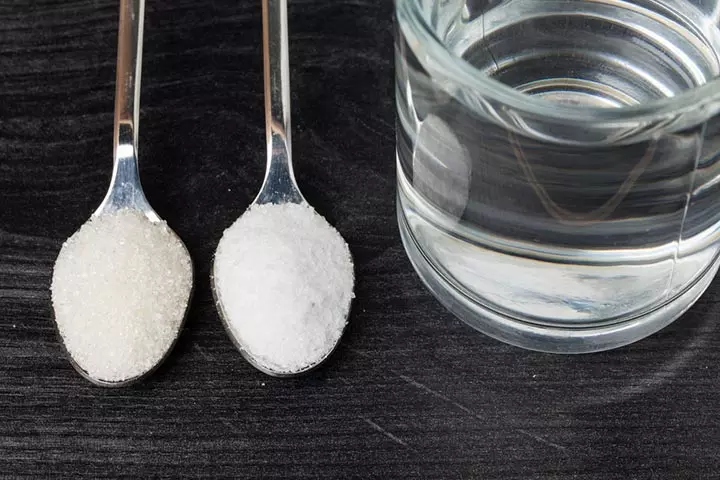
5. Iron supplements or medications are not discontinued to change the stool color. The prescriptions are only changed if the child experiences other GI symptoms, such as gas and tummy discomfort, along with green poop. However, in some cases, doctors may recommend discontinuation for a few days to confirm the cause.
Frequently Asked Questions
1. How long does green poop last?
Depending on the cause, a child may pass green stools for a couple of days to weeks. For instance, green poop caused by ingestion of green-colored foods, such as spinach, resolves by itself. On the other hand, green poop caused by infection would require treatment, after which the stool color will return to normal.
2. Can liver issues cause green poop in children?
Problems in the biliary system–drainage system of the liver, gallbladder, and pancreas usually cause pale, clay, or putty-colored stools. Generally, bile salts from the liver give stool its normal brown color. A child may have clay-colored stools if they have reduced bile production due to liver infection or blocked bile flow (9).
3. Does dehydration cause green poop in children?
Dr. Rubin observes, “Dehydration itself typically leads to constipation, with darker and harder poop, not green poop in particular.”
Green poop in kids is normal if no other concerning symptoms exist. However, ensure that the stool is green and not black since the color may not be clear in dim lighting. Green food dyes, certain medications, and certain foods can cause green poop in children, and it resolves as the diet changes. However, seek pediatric care if your child has green stool without known reasons or has other digestive problems. Diagnosis and timely treatment can prevent complications or worsening conditions if the green poop is caused by infections or celiac disease.
Infographic: Reasons Behind Your Child’s Green Poop
Green stools are expected during the initial days after a baby’s birth and may also be seen later for various reasons. Here is an infographic that discusses frequent causes and underlying factors that may lead to green stools in children. Illustration: Momjunction Design Team
Illustration: Main Causes Of Green Poop In Kids And What It Means

Image: Dalle E/MomJunction Design Team
Learn about the different colors and textures of baby poop, and what they mean. Causes and meanings of grey, black, green, yellow, red and more. Get the answers you need to keep your baby healthy.
References
- Stools – Unusual Color; Children’s Hospital Colorado
https://www.childrenscolorado.org/conditions-and-advice/conditions-and-symptoms/symptoms/stools-unusual-color/ - Green Stool;Healthgrades
https://resources.healthgrades.com/right-care/digestive-health/green-stool - Baby’s Poop; La Leche League International
https://llli.org/news/babys-poop/#:~:text=Green%20poop%20may%C2%A0have%20several%20causes%3A%20naturally%20green%20or%20artificially%20colored%20foods%20in%20mom%E2%80%99s%20diet%3B%20baby%20or%20mother%20taking%20antibiotics - Wendy KW Yap et al.; (2008); Changes in Infants Faecal Characteristics and Microbiota by Inulin Supplementation.
https://pmc.ncbi.nlm.nih.gov/articles/PMC2581760/#:~:text= - Stools – Unusual Color
https://www.healthychildren.org/English/tips-tools/symptom-checker/Pages/symptomviewer.aspx?symptom=Stools+-+Unusual+Color#:~:text - Toddler’s Diarrhea
https://www.mottchildren.org/posts/your-child/toddlers-diarrhea - Your child’s poop: An ultimate guide.
https://health.choc.org/your-childs-poop-an-ultimate-guide/ - Guillermo Bernaola Aponte et al.; (2013); Probiotics for treating persistent diarrhoea in children.
https://pmc.ncbi.nlm.nih.gov/articles/PMC6532736/ - Stools – pale or clay-colored; Icahn School of Medicine at Mount Sinai
https://www.mountsinai.org/health-library/symptoms/stools-pale-or-clay-colored - Why Is Your Poop Green?
https://health.clevelandclinic.org/green-poop
Community Experiences
Join the conversation and become a part of our nurturing community! Share your stories, experiences, and insights to connect with fellow parents.
Read full bio of Dr. Priya Thomas
- Dr. Cindy Rubin is a pediatrician and breastfeeding medicine specialist practicing in the Western Suburbs of Chicago. She did her undergrad at Stanford University, medical school at Georgetown, and pediatrics residency at the University of Chicago. After working at Loyola University Medical Center as an outpatient general pediatrician for 13 years, she opened her new practice, In Touch Pediatrics and Lactation.
 Dr. Cindy Rubin is a pediatrician and breastfeeding medicine specialist practicing in the Western Suburbs of Chicago. She did her undergrad at Stanford University, medical school at Georgetown, and pediatrics residency at the University of Chicago. After working at Loyola University Medical Center as an outpatient general pediatrician for 13 years, she opened her new practice, In Touch Pediatrics and Lactation.
Dr. Cindy Rubin is a pediatrician and breastfeeding medicine specialist practicing in the Western Suburbs of Chicago. She did her undergrad at Stanford University, medical school at Georgetown, and pediatrics residency at the University of Chicago. After working at Loyola University Medical Center as an outpatient general pediatrician for 13 years, she opened her new practice, In Touch Pediatrics and Lactation.
Read full bio of Dr Bisny T. Joseph
Read full bio of Dr. Ritika Shah
Read full bio of Vidya Tadapatri










